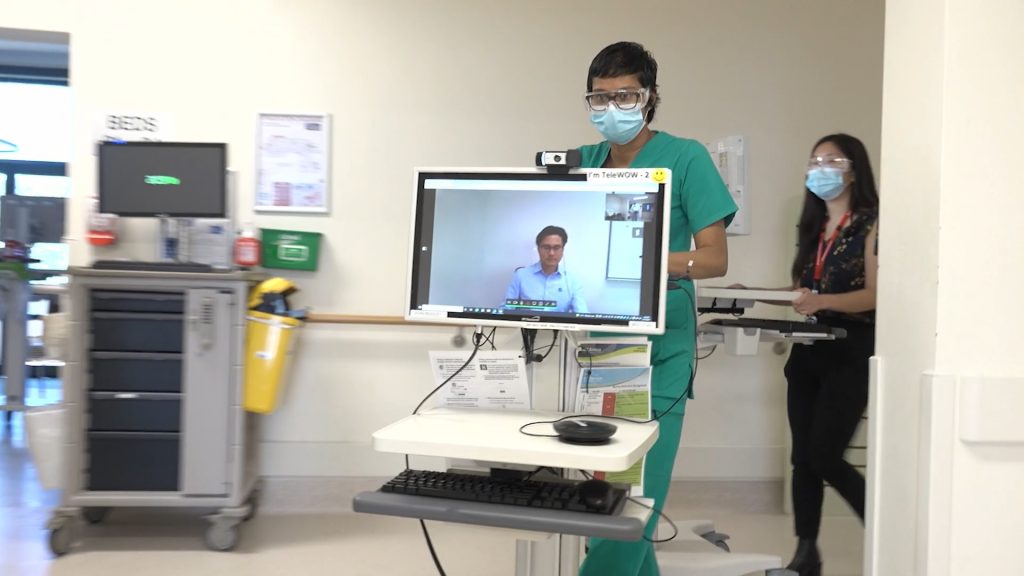
Patient safety remains a paramount concern in the fast-paced and ever-evolving healthcare environment. Ensuring timely and accurate patient care is critical; the right technology can make a significant difference. Medical cart computers, also known as mobile workstations or all-in-ones, are proving to be a game-changer in optimizing patient safety and care.
Check out how these advanced workstations enhance patient safety, streamline workflows, and improve overall healthcare delivery.
The Role of Medical Cart Computers in Patient Safety
Medical cart computers are mobile, versatile workstations equipped with high-performance computing capabilities, designed to support various clinical tasks. They enable healthcare professionals to access and update patient information at the bedside or almost anywhere the patient is, thereby reducing errors and improving care coordination. Here are some key ways medical cart computers enhance patient safety:
1. Real-Time Access to Patient Information
One of the most significant advantages of medical cart computers is their ability to provide real-time access to patient records. This ensures that healthcare providers have the most up-to-date information when making critical decisions. Instant access to electronic health records (EHRs) helps reduce medication errors, as clinicians can verify patient history, allergies, and current medications before administering treatments.
2. Enhanced Medication Administration
Medication errors are a common cause of patient harm in hospitals. Medical cart computers are often integrated with smartcard and RFID technology, which allows for the verification of patient identity and medications at the point of care. This “five rights” approach—right patient, drug, dose, route, and time—significantly reduces the risk of medication errors and enhances patient safety.
3. Improved Documentation and Compliance
Accurate documentation is crucial for patient safety and regulatory compliance. Medical cart computers enable healthcare providers to document care activities at the bedside, ensuring that records are accurate and complete. This reduces the likelihood of documentation errors and ensures that all patient interactions are properly recorded. Additionally, these mobile computers can prompt clinicians to complete mandatory fields, further enhancing compliance with healthcare regulations and standards.
4. Streamlined Workflow and Reduced Workload
Medical cart computers help streamline workflows by centralizing various tasks, such as charting, medication administration, and order entry, into a single, portable workstation. This reduces the time clinicians spend moving between different locations and systems, allowing them to focus more on patient care. By decreasing the administrative burden, medical cart computers also help reduce clinician burnout, which is linked to improved patient safety.
5. Enhanced Mobility and Flexibility
The mobility of medical cart computers allows healthcare providers to bring the workstation directly to the patient’s bedside. This not only improves efficiency but also enhances the quality of patient interactions. Providers can engage with patients and their families more effectively, answering questions and explaining treatment plans in real-time. Enhanced communication and patient engagement are critical components of patient safety and satisfaction.
6. Infection Control and Prevention
Infection control is a critical aspect of patient safety, particularly in hospital settings. Medical cart computers are designed with infection control in mind, featuring antimicrobial surfaces and easy-to-clean components. The fanless operation also means airborne contaminants are not recirculated in the area. These features reduce the risk of cross-contamination and hospital-acquired infections (HAIs), contributing to a safer environment for patients and staff.
Choosing the Right Medical Cart Computer
Selecting the right medical cart computer is crucial for maximizing patient safety benefits. Here are some factors to consider:
1. Ergonomics and Usability
The design of the medical cart computer should prioritize ergonomics and ease of use. Features such as adjustable height, swivel monitors, and user-friendly interfaces enhance usability and reduce physical strain on clinicians.
2. Battery Life and Charging Solutions
Long battery life and efficient charging solutions are essential for uninterrupted operation. Medical cart computers should have reliable power management systems to ensure they are always ready for use. With hot-swappable batteries that can be changed even in a busy moment with no downtime, medical cart computers are capable of running around the clock.
3. Connectivity and Integration
Seamless connectivity and integration with existing hospital systems, such as EHRs and medication administration systems, are critical. Medical cart computers support wireless connectivity and have the necessary ports and interfaces for integration.
4. Durability and Mobility
Durability and mobility are key considerations. Medical cart computers are robust enough to withstand the rigors of a hospital environment and easily maneuverable to reach different patient areas.
5. Infection Control Features
Infection control features, such as antimicrobial surfaces and easy-to-clean components, are essential for maintaining a safe and hygienic environment. Medical cart computers are designed with infection prevention in mind.
Medical cart computers are transforming the healthcare landscape by enhancing patient safety, improving workflow efficiency, and supporting better clinical decision-making. By providing real-time access to patient information, reducing medication errors, and streamlining documentation, these mobile workstations play a crucial role in delivering high-quality, safe patient care.
As healthcare continues to evolve, the adoption of advanced technologies like medical cart computers will be instrumental in optimizing patient safety and improving overall healthcare outcomes.

